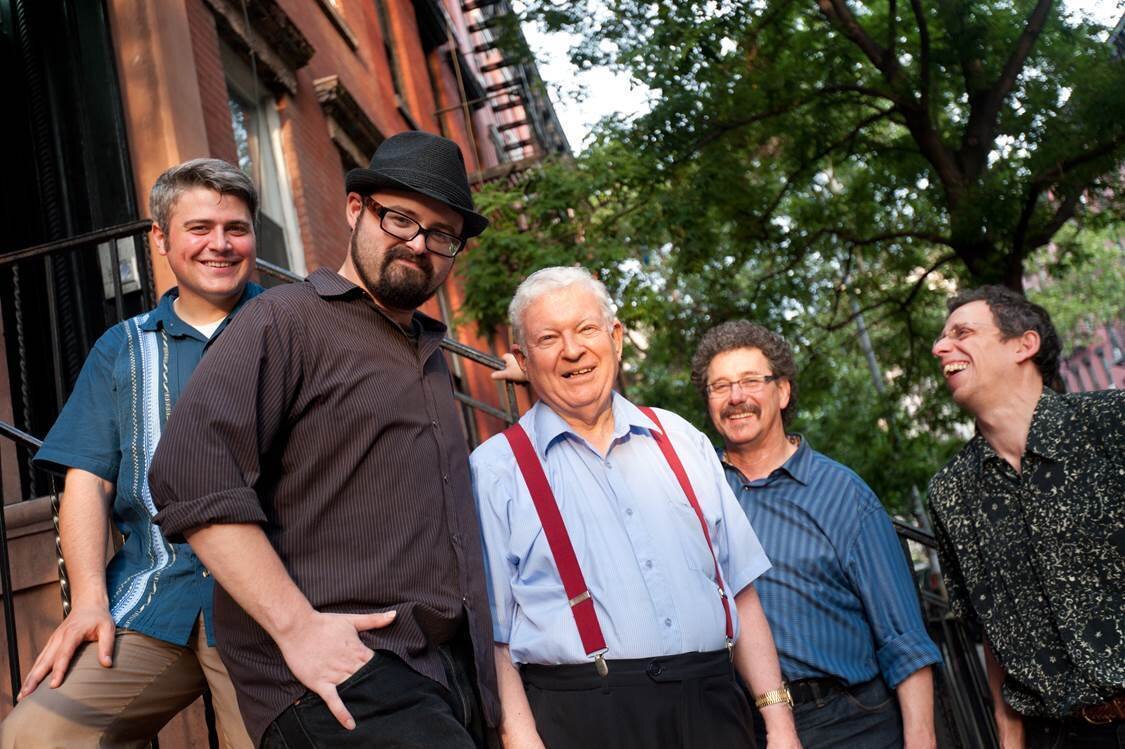(New York Jewish Week) — The late Brooklyn klezmer musician Pete Sokolow would sometimes take the stage as “Klezmer Fats.” But many players used a different sobriquet to refer to the pianist, who served as a link between generations: “the youngest of the old guys.”
Sokolow started playing klezmer in the summer of 1958 with older musicians at resorts in the Catskills. Twenty years later he was part of the klezmer revival.
“When it mattered, Pete was there,” klezmer historian Henry Sapoznik told the New York Jewish Week. “Pete was able to build a bridge” from the old-timers to the klezmer revivalists.
Sokolow died Dec. 4, 2022 at age 80. One year later, on Tuesday, Dec. 19, he’ll be remembered in a Zoom gathering held in conjunction with the upcoming Yiddish New York festival. Sokolow’s musical colleagues and family will join Sapoznik to honor his memory.
Sokolow began his career playing clarinet and saxophone but switched to piano, an instrument that was not originally associated with klezmer. His cramped Brooklyn living room was dominated by a Steinway baby grand from the late 1800s, inherited from his father, a piano teacher. When Sokolow was 17 he picked up one of his father’s old 78s, sat at the piano and taught himself how to play the Fats Waller style — thus, “Klezmer Fats.”
When the the klezmer revival kicked off in the late 197os, he was baffled by its leap from weddings and other “simchas” to the concert hall.
“All klezmer was, was dance music,” he said. “To me, it was the shockaroo of my life at that point that anybody would want to sit and listen to a concert of dance music.”
Throughout his career Sokolow played jazz as well as klezmer. He was particularly talented as a stride piano player. Sokolow led two bands: Klezmer Plus and the Original Klezmer Jazz Band. He also was a member of Sapoznik’s band Kapelye.
The klezmer clarinetist Michael Winograd played with him in the cross-generational Tarras Band, inspired by the music of the late klezmer virtuoso Dave Tarras. In an interview for a radio profile of Sokolow, Winograd said: “He’s a musician’s musician. He has perfect melodic sense, perfect harmonic sense. He’s a great arranger. He has one of those minds that you bump into every once in a while.”
Sokolow was the last regular keyboard player in the Tarras’ ensemble. He was known as the Fifth Epstein Brother because he played with The Four Epsteins, who began performing together as a klezmer ensemble in the late 1940s.
Sapoznik said Sokolow was “unbelievably productive.” In addition to his involvement in klezmer re-issues, writing klezmer tune books and orchestrating music for the Yiddish Radio Project, Sokolow had a hand in reviving the careers of old, retired klezmer musicians.
“It was because of Pete that the Epsteins got rediscovered,” said Sapoznik. In 1996, three surviving brothers performed together in the documentary “A Tickle in the Heart.”
Scores of young klezmer musicians, including Winograd, studied with Sokolow at KlezKamp, the yearly klezmer music and Yiddish culture festival in New York State. He was known as a tough as nails teacher. Sapoznik once joked that if you open up Webster’s dictionary and to look up “irascible,” you’ll see Sokolow’s picture.
“There was sort of an entrance exam” to be his student, said Sapoznik. “If you didn’t mind having your eyebrows singed off the first time, the results of being taken in and encouraged and motivated — no one else could come close to what he could do to fast-track your ability to grok the music.”
“He had a very low boiling point for people who attempted to change the music without understanding it, to change it just to change it. He would not brook that.”
But Sokolow was flexible enough to play pop music at wedding gigs.
“I think my peak personal music moment was hearing Pete sing ‘Love to Love You, Baby’ by Donna Summers,” joked Sapoznik. “And he did a great [version of Madonna’s] ‘Material Girl.’”
Sokolow suffered a stroke in 2015 and ended up missing the last KlezKamp. At the time he said, “Now I’m the oldest old guy. Most of the old guys are gone. Dave [Tarras] is gone. Sidney [Beckerman] is gone. All my old friends. I miss them.”
The online memorial for Pete Sokolow will take place on Tuesday at 7:30 p.m. Click here to register.
The New York Jewish Week brings you the stories behind the headlines, keeping you connected to Jewish life in New York. Help sustain the reporting you trust by donating today.





